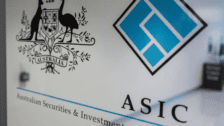Code of Ethics important, but it won’t supplant the Safe Harbour Steps
The financial services minister’s reluctance to include the removal of the Safe Harbour Steps in his Delivering Better Financial Outcomes reform package likely comes down to a lack of faith in its incumbent alternative – the financial adviser Code of Ethics.
When Stephen Jones delivered draft legislation for the Quality of Advice Review’s recommendations earlier this month two key policy reforms he’d previously characterised as “quick wins” were omitted; replacing SoAs with shorter documents, and removing the Safe Harbour Steps from the Best Interest Duty.
While the SoA repeal has some complexity, it was thought that removing the Safe Harbour Steps would be a simpler amendment given it was understood to be happening on the premise that the Code of Ethics – made law on January 1, 2020 – now made them redundant.
The Code of Ethics should be a “single tool” for advisers to show they’ve met the Best Interests Duty, argued the Financial Services Council in 2019, with its principles-based approach more appropriate than the ‘tick-a-box’ method of satisfying what some see as an outdated list of steps.
The move would also see advisers take a more ethically-focussed view of compliance, the FSC submitted.
“The Code of Ethics’ primarily would be strengthened by removing the Safe Harbour Steps as the financial adviser would be obliged to meet the Best Interests Duty based on their own ethical approach, rather than an administrative process,” the council stated.
There were early signs, however, that the financial services minister was not on board. “The safe harbour rules are not the problem; they are there to protect advisers,” he said in May, 2022. “That’s their purpose.”
The policy messaging got mixed, however, when Jones then included a repeal of the steps in the government’s response to Michelle Levy’s proposals for the Quality of Advice review. The water was muddied further when Jones then omitted their repeal in the this month’s draft legislation, saying instead that it required further consultation.
Certainty and confidence
According to Phil Anderson, the Financial Advice Association’s head of policy (pictured), the issue is that the government doesn’t have enough confidence in the Code of Ethics as a backstop to compliance.
“The Code of Ethics is important, but I don’t think it defines what you have to do to demonstrate that you have met the best interest duty,” Anderson told The Inside Adviser on the sidelines of the Financial Advice Association’s national conference in Adelaide this week. “It says you have to comply with the Best Interest Duty but it doesn’t say how it’s going to be proven at that point.”
Certainty and confidence is “critical” in the legislative process, Anderson said, and the government is determined not to rush implementation of the reforms despite concern over a timeline that has been stretched repeatedly and could spill into the next federal election, which is likely in early 2025 but could come as early as August 2024.
There are a few other factors buffeting the Code’s ability to supplant the Safe Harbour Steps, Anderson said; elements of the Code have been flagged for review, and it may be that an ethics code, by its very nature, is too flimsy for benchmark legislation.
“The Code of Ethics probably isn’t prescriptive enough in the government’s eyes, he said. “And we probably don’t want it to be; it’s an ethics code, and not designed to replace the Best Interests Duty.”











